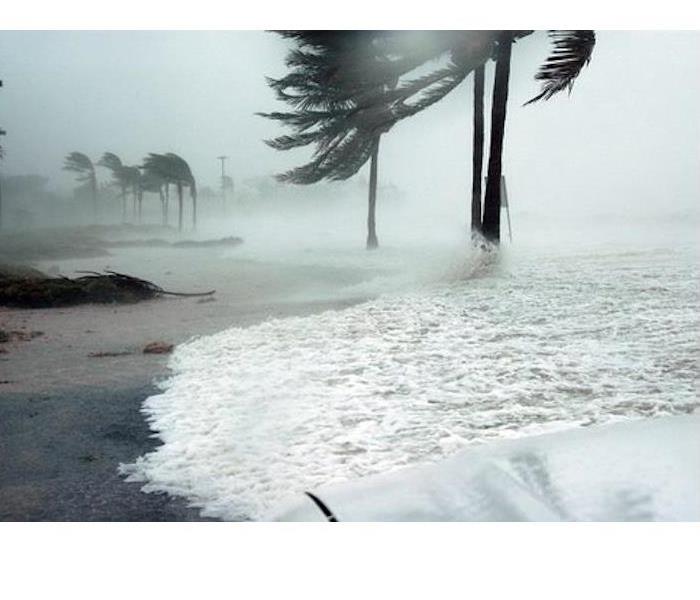Hurricane Preparedness Week – May 5-11 2019
5/9/2019 (Permalink)
Source: FEMA/ready.gov
Hurricanes are among nature's most powerful and destructive phenomena. On average, 12 tropical storms, 6 of which become hurricanes form over the Atlantic Ocean, Caribbean Sea, or Gulf of Mexico during the hurricane season which runs from June 1 to November 30 each year. Over a typical 2-year period, the U.S. coastline is struck by an average of 3 hurricanes, 1 of which is classified as a major hurricane (winds of 111 mph or greater). By knowing what actions to take before the hurricane season begins, when a hurricane approaches, and when the storm is in your area, as well as what to do after a hurricane leaves your area, you can increase your chance of survival.
Here's what you can do now...
The best time to prepare for a hurricane is before hurricane season begins on June 1. It is vital to understand your home's vulnerability to storm surge, flooding, and wind. Here is your checklist of things to do BEFORE hurricane seasons begins.
- Know your zone: Do you live near the Gulf or Atlantic Coasts? Find out if you live in a hurricane evacuation area by contacting your local government/emergency management office or by checking the evacuation site website.
- Put Together an Emergency Kit: Put together a basic emergency. Check emergency equipment, such as flashlights, generators and storm shutters.
- Write or review your Family Emergency Plan: Before an emergency happens, sit down with your family or close friends and decide how you will get in contact with each other, where you will go, and what you will do in an emergency. Keep a copy of this plan in your emergency supplies kit or another safe place where you can access it in the event of a disaster. Start at the Ready.Gov emergency plan webpage.
- Review Your Insurance Policies: Review your insurance policies to ensure that you have adequate coverage for your home and personal property.
- Understand NWS forecast products, especially the meaning of NWS watches and warnings.
If hurricanes impact the Nassau county/North Jacksonville area this year, SERVPRO of Fernandina Beach/Jacksonville Northeast will be ready to help you get your life back to normal, "Like it never even happened." Call us at 904.729.2401






 24/7 Emergency Service
24/7 Emergency Service
